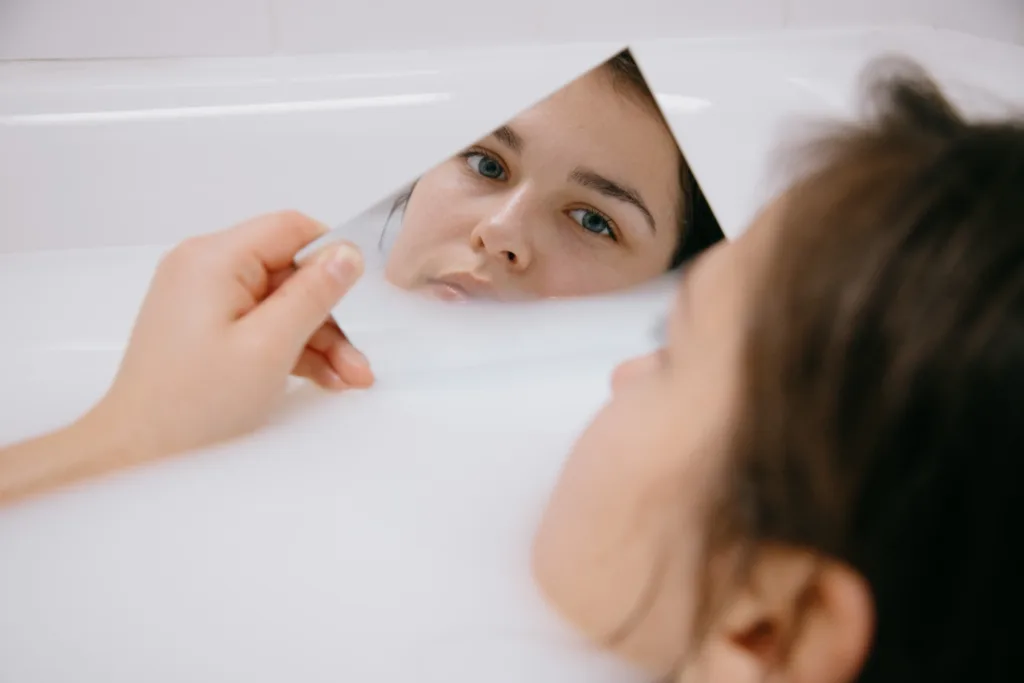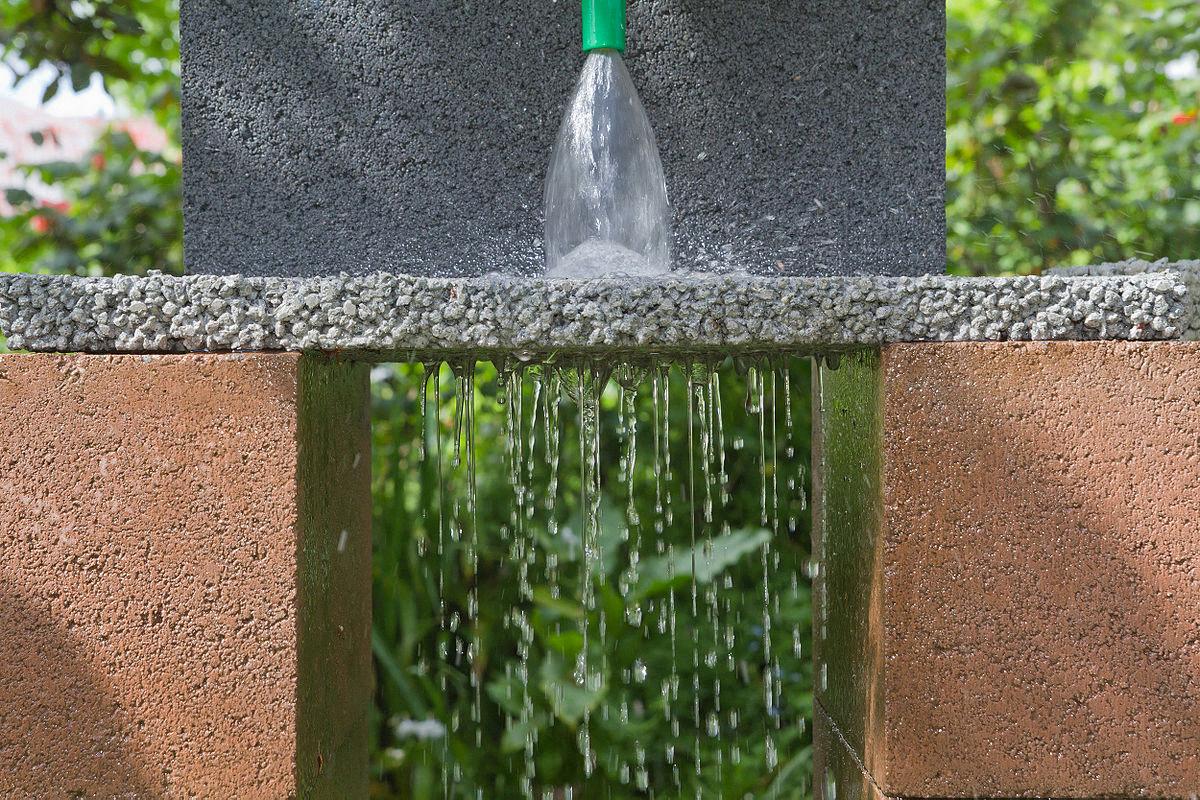One of the most common beliefs in skincare is that hot water opens up pores. But is it really true? In this blog post, we’ll explore the science behind hot water and pores to see if there’s any truth to this popular myth.
First, let’s define what pores are. Pores are tiny openings on the surface of your skin that allow sweat and oil to escape. They’re also home to hair follicles and sebaceous glands, whih produce sebum (oil) to keep your skin moisturized.
Now, onto hot water. When you expose your skin to hot water, it can cause your blood vessels to dilate (or widen), which can increase blood flow to the surface of your skin. This can give your skin a flushed, pinkish appearance. However, this doesn’t necessarily mean that your pores are opening up.
In fact, pores don’t actually have muscles that can contract or expand like your pupils, for example. They’re always open to some degree, regardless of whether you’re using hot or cold water. So, if hot water doesn’t open up your pores, what does it do?
Hot water can help to soften the debris and oil that’s trapped within your pores, making it easier to clean them out. It can also help to increase circulation, which can improve the overall health and appearance of your skin. However, it’s important to note that hot water can also be damaging to your skin if you’re not careful.
If you expose your skin to hot water for too long or too frequently, it can strip away the natural oils that keep your skin hydrated and healthy. This can lead to dryness, irritation, and even inflammation. So, while hot water can have some benefits for your skin, it’s important to use it in moderation and to be gentle when washing your face or body.
Hot water doesn’t actually open up your pores, but it can help to soften the debris and oil that’s trapped within them. Hot water can also improve circulation and the overall appearance of your skin, but it should be used in moderation to avoid damaging your skin. Proper face-washing, steaming treatments, face masks, and exfoliation can all help to unclog your pores and keep your skin looking its best.
The Benefits of Hot Water for Pores
Hot water can be harmful to your pores as it can strip your skin of its natural oils, leading to dryness and irritation. Additionally, hot water can cause your pores to open up, making them more susceptible to dirt and bacteria. This can lead to clogged pores and breakouts. It is recommended to use lukewarm water when cleansing your face to avoid any potential damage to your pores. Warm water can help to plump the skin and make pores appear smaller, but it is important to avoid using water that is too hot.

The Effect of Hot and Cold Water on Pores
Hot water is knwn to open pores, while cold water has the opposite effect of shrinking them. The reason for this is that heat causes the blood vessels in your skin to dilate, which increases blood flow and opens up your pores. When your pores are open, it’s easier for dirt, oil, and other impurities to be released from your skin.
On the other hand, cold water has a constricting effect on blood vessels, which can cause your pores to tighten up. This can be beneficial for people with oily or acne-prone skin, as it can help to reduce the appearance of pores and prevent future breakouts.
However, it’s important to note that the effect of hot or cold water on your pores really depends on your individual skin type. If you have dry or sensitive skin, hot water can actually strip your skin of its natural oils, leaving it more prone to dehydration and irritation. In this case, it’s better to use lukewarm water instead. Ultimately, the best temperature for your skin will vary based on your unique needs and preferences.
The Effects of Hot Showers on Pores
Hot showers do open pores. The steam and heat from hot showers can help to loosen and soften the skin, making it easier for dirt, oil, and other impurities to be removed from the pores. When the pores are open, it also allows for better absorption of skincare products, which can lead to improved skin health and appearance. However, it’s important to note that hot showers should be balanced with cooler water temperatures to avoid drying out the skin and causing irritation. Additionally, those with sensitive skin or certain skin conditions should consult with a dermatologist before incorporating hot showers into teir skincare routine.
What Can Be Used to Open Pores?
It is a common misconception that pores can be opened or closed. Pores are actually tiny openings in your skin that allow oil, sweat, and other substances to pass through. However, while you cnnot physically open or close your pores, you can make them appear larger or smaller.
Various factors such as heat, humidity, and sweating can cause your pores to temporarily expand, making them appear larger. For example, when you take a hot shower or use a sauna, the heat can cause your pores to dilate or expand. This can also happen when you exercise or sweat heavily.
On the other hand, certain skincare products and treatments can help minimize the appearance of pores. Regular face-washing is crucial in keeping pores clean and preventing them from becoming clogged with dirt, oil, and dead skin cells. Gentle exfoliation and facial masks can also help unclog pores and remove impurities.
While there is no way to physically open or close your pores, you can take steps to keep them clean and minimize their appearance.
The Effects of Cold Showers on Pore Closure
Cold showers do help to close pores. When you expose your skin to cold water, the blood vessels and capillaries constrict, which in turn tightens the skin and reduces the size of the pores. This can help to prevent the buildup of dirt and oil that can lead to acne and other skin problems. Additionally, cold water can help to reduce inflammation and redness, which can also contribute to a healthier complexion. It’s worth noting, however, that cold showers may not be suitable for everyone, particularly thse with certain medical conditions or sensitivities to cold temperatures. As with any health or wellness practice, it’s important to consult with a healthcare provider before making any significant changes to your routine.

Opening Pores Naturally
Actually, there is no need to open your pores naturally since they are always open. However, you may want to unclog your pores to prevent the accumulation of dirt, oil, and dead skin cells, which can cause blackheads, whiteheads, and acne. Here are some natural remedies that can help you achieve this goal:
1. Steam: Exposing your face to steam can help to open up your pores and loosen up the debris. Boil water, pour it into a bowl, and lean your face over the steam for 5-10 minutes.
2. Aloe Vera: Aloe vera is a natural astringent that can help to tighten your pores and reduce inflammation. Apply fresh aloe vera gel to your face and leave it on for 10-15 minutes befre washing it off.
3. Egg White Mask: Egg white contains protein and collagen that can improve the elasticity of your skin and tighten your pores. Mix one egg white with a tablespoon of honey and apply the mixture to your face. Leave it on for 10-15 minutes before rinsing it off.
4. Papaya Mash: Papaya is rich in antioxidants that can help to reduce blemishes and unclog your pores. Mash a ripe papaya and apply it to your face for 10-15 minutes before washing it off.
5. Banana: Banana contains vitamins and minerals that can nourish your skin and reduce the appearance of pores. Mash a ripe banana and apply it to your face for 10-15 minutes before rinsing it off.
6. Argan Oil: Argan oil is rich in fatty acids and antioxidants that can help to hydrate your skin and reduce inflammation. Apply a few drops of argan oil to your face and massage it in gently.
7. Jojoba Oil: Jojoba oil is similar to the natural oil produced by your skin, which makes it an excellent natural moisturizer. Apply a few drops of jojoba oil to your face and massage it in gently.
8. Olive Oil: Olive oil contains antioxidants and vitamins that can help to nourish your skin and reduce the appearance of pores. Apply a small amount of olive oil to your face and massage it in gently.
9. Tea Tree Oil: Tea tree oil is a natural antiseptic that can help to kill bacteria and reduce inflammation. Mix a few drops of tea tree oil with water and apply it to your face with a cotton ball. Leave it on for 10-15 minutes before rinsing it off.
Unclogging Pores: Tips and Techniques
Unclogging pores is an important step in maintaining healthy and clear skin. Here are some effective ways to unclog your pores:
1. Avoid squeezing your pores. This can cause further irritation and breakouts.
2. Use a cleanser with salicylic acid. Salicylic acid is a beta-hydroxy acid that penetrates deep into the pores to break down excess oil and dead skin cells.
3. Try a jelly cleanser to banish pore buildup. Jelly cleansers are gentle and effective in removing impurities without stripping the skin of its natural oils.
4. Exfoliate your skin with a face scrub. Exfoliating helps to remove dead skin cells that can clog pores and lead to breakouts.
5. Cleanse with baking soda. Baking soda is a natural exfoliant that can help to unclog pores and remove impurities.
6. Use a pore strip to unclog pores on your nose. Pore strips work by attaching to blackheads and pulling them out of the pores.
7. Apply a clay or charcoal mask to treat your skin. Clay and charcoal masks are great for drawing out impurities and unclogging pores.
8. Try a pore cleanser. Pore cleansers work by using suction to remove dirt, oil, and dead skin cells from deep within the pores.
Unclogging pores is an essential step in achieving clear and healthy-looking skin, and thee are many effective ways to do so.
Closing Pores with Water
Chilled water is known for its ability to close your pores. When you wash your face with warm water, your pores tend to open up, and this can leave your skin vulnerable to harmful bacteria. However, rinsing your face with cold water after cleansing can help to close your pores, wich seals your skin and prevents bacteria from penetrating it. Chilled water is particularly effective for this purpose because it has a lower temperature than your body, which causes your skin to contract and your pores to close up. So, if you want to keep your skin clear and healthy, consider rinsing your face with chilled water after cleansing.
The Benefits of Hot Water for Acne Treatment
Hot water is not recommended for acne-prone skin as it can exacerbate the condition. High temperatures can strip the skin of its natural oils, leading to dryness and irritation. This can result in the skin producing more oil to compensate, which can clog pores and worsen acne.
On the other hand, warm water can be beneficial for acne-prone skin as it can help to open up pores and alow for deeper cleansing. Warm water can also help to soothe inflammation and reduce redness. However, it is important not to use water that is too hot, as this can still be damaging to the skin.
It is best to use lukewarm water when washing the face, and to avoid hot water as much as possible. Additionally, it is important to use gentle, non-comedogenic cleansers and to avoid scrubbing the skin too harshly, as this can further irritate acne-prone skin.

Does Cold Water Affect Pore Size?
There is a common misconception that cold water can open your pores, but this is actually not true. Pores are not muscles, so they cannot voluntarily open or close. The size of your pores is determined by genetics and other factors such as age and skin type. When you expose your skin to cold water, it can case vasoconstriction, which is the narrowing of blood vessels, but this does not affect your pores. In fact, some people believe that cold water can help to reduce the appearance of pores because it can temporarily tighten the skin and reduce inflammation. However, this effect is only temporary and does not actually change the size of your pores. Therefore, while cold water can have some benefits for your skin, it does not have the ability to open or close your pores.
What Causes Large Pores?
Large pores are usually caused by excess oil, dead skin cells, and dirt that accumulate in the pores. When these substances build up, they can stretch the skin surrounding the pore, making it appear larger. Too much sun exposure can also cause pores to become more noticeable, as it damages and weakens the skin’s collagen and elastin fibers, whih provide support to the skin. Genetics can also play a role in the size of pores, as some people are simply predisposed to having larger pores than others. Hormones can also contribute to pore size, as hormonal fluctuations can stimulate the production of oil, leading to clogged pores and an enlarged appearance. maintaining good skincare habits and protecting the skin from sun damage can help minimize the appearance of large pores.
The Impact of Showering on Acne
Acne can worsen ater a shower due to the use of hot water. Hot water strips the skin of its natural oils and healthy bacteria, which are essential for keeping the skin moisturized and protecting it from harmful bacteria. When the skin is stripped of these essential components, it triggers the sebaceous glands to produce more sebum, which can lead to more breakouts. Additionally, the heat from the water can cause irritation and inflammation, making existing acne worse. To prevent this, it’s recommended to use lukewarm water and gentle, non-comedogenic cleansers to maintain the skin’s natural balance and keep acne under control.
The Effects of Hot Water on Skin
Hot water can have a negative impact on your skin by causing inflammation, which can result in redness, itching, and peeling. This is because hot water can disrupt the natural balance of moisture in your skin by stripping away the natural oils, fats, and proteins that keep your skin healthy. In addition to this, hot water can also lead to dryness and flakiness, making your skin more susceptible to damage and irritation. Therefore, it is important to limit your exposure to hot water and use lukewarm or cool water instead to maintain the health and vitality of your skin.

Source: en.wikipedia.org
The Benefits of Hot Water for Facial Skin
Hot water is not good for your face. When you wash your face with hot water, it can cause damage to your skin’s natural moisture barrier. This is because hot water can strip your skin of its natural oils, leaving it dry and irritated. When your skin is dry, it can become more sensitive and prone to irritation and inflammation. Additionally, hot water can cause blood vessels in your face to dilate, which can lead to redness and irritation. To avoid these negative effects, it is recommended to use lukewarm water when washing your face. This temperature is gentle enugh to cleanse your skin without causing damage or irritation.
Does Steam Open Pores?
Steam does actualy open pores. When you expose your skin to steam, the heat causes your pores to expand and open up. This process is called vasodilation, where the blood vessels in your skin widen and increase blood flow. As a result, the heat from the steam causes your skin to sweat and flush out toxins, dirt, and excess oil that can clog your pores. Once your pores are open, it is easier to remove impurities, such as blackheads, from your skin. However, it is essential to note that steam alone is not enough to deep clean your skin. You still need to use a gentle cleanser to remove impurities effectively.
Conclusion
Hot water can offer numerous benefits for your skin. It can help to open up your pores, making it easier to clean out dirt and toxins, leading to clearer skin. Additionally, hot water can help to plump up your skin, making your pores appear smaller. However, it’s important to note that if you have chronically dry skin, hot water may strip your skin of its natural oils, making it difficult for it to stay hydrated and healthy. Therefore, it’s recommended that you use lukewarm water when washing your face, as this will still offer the benefits of opening up your pores wthout causing any damage to your skin. Ultimately, proper face-washing, along with other treatments like steaming, face masks, and exfoliation, can help to keep your pores clean and your skin looking its best.
